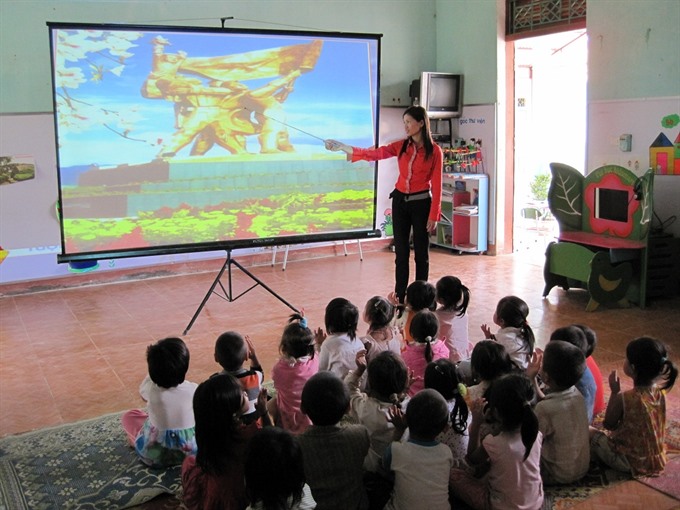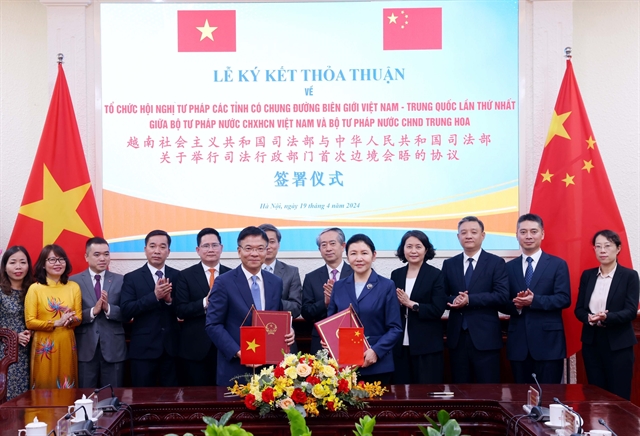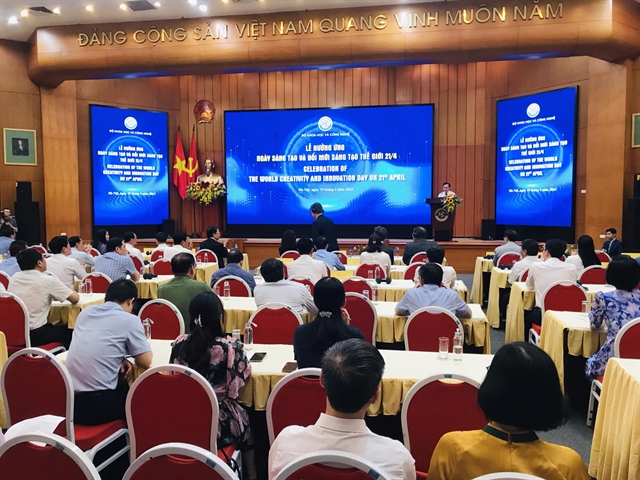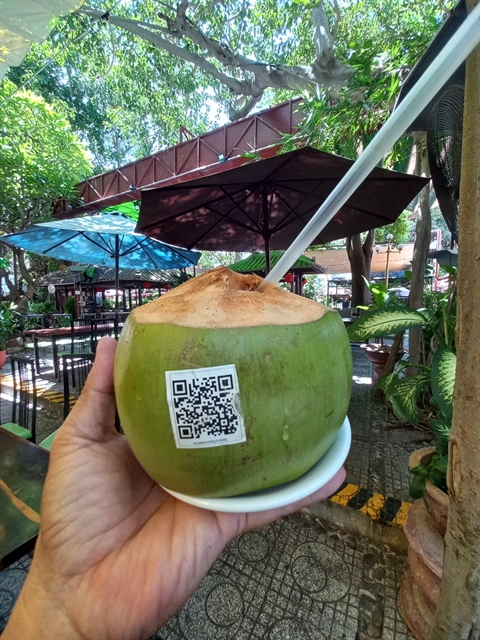

By 2020, all state governing bodies in education and training and all other educational institutions hope to perform administrative activities online. Seventy per cent of meetings between state governing bodies and educational institutions are hoped to be conducted via teleconference.
 |
| A pre-school classroom in Điện Biên Phủ City, Điện Biên Province. Technology was utilised to give kids a better and quicker grasp of basic concepts such as ordinal numbers and numerals. — Photo dienbien.edu.vn |
HÀ NỘI — By 2020, all state governing bodies in education and training and all other educational institutions hope to perform administrative activities online. Seventy per cent of meetings between state governing bodies and educational institutions are hoped to be conducted via teleconference.
These ambitious figures were part of a scheme entitled “Promoting information & communications technology (ICT) integration in managing and supporting teaching-studying and researching activities, in aid of strengthening education and training quality for 2016-2020, with a vision towards 2025,” which was just ratified by Prime Minister Nguyen Xuan Phuc.
The plan also aims to put 70 per cent of training classes online with ‘blended learning’, which combines digital media with traditional classroom methods.
Sector-wide database
One of the key aims of the scheme is to develop sector-wide management information that will facilitate connections and information sharing between information systems from central to local levels.
Also, all pedagogy-related issues like the management of students and teachers, management of tests, management of school records, school timetables and integration with schools’ websites will be done online at all levels, from pre-school, to 12-year formal education, and continuing education.
Renewal efforts
The scheme is expected to boost ICT integration in renovating traditional methods currently used in teaching and studying, as well as in scientific research and result assessment.
Specifically, a digital teaching-and-learning material database will be established and frequently updated. This database will contain electronic lectures, multimedia learning materials, electronic textbooks, simulation software and other learning materials.
An online question bank of all subjects will also be developed and regularly updated.
In addition, concerned agencies will need to collaborate in developing a digital library portal – which contains textbooks, lectures, and learning materials – to make it easier for education institutions to access these resources.
Online lectures from other countries can also be used. Undergraduate-level e-learning school models will be established anew or expanded upon existing schools, using capital from foreign sources or private enterprises. —VNS









